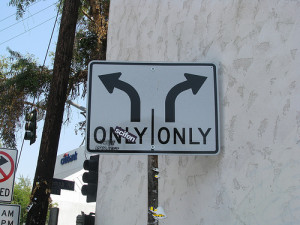 The Nation, a weekly political periodical self-described as “the flagship of the left,” obtained the results of a recent study before its publication. That study, “A Tale of Two Blogospheres,” conducted by researchers at Harvard University, Yale University, and The University of California at Berkeley, disputes several conventional views of political blogs.
The Nation, a weekly political periodical self-described as “the flagship of the left,” obtained the results of a recent study before its publication. That study, “A Tale of Two Blogospheres,” conducted by researchers at Harvard University, Yale University, and The University of California at Berkeley, disputes several conventional views of political blogs.
Ari Melber, a blogger for The Nation, explains those common misconceptions:
The dominant academic literature posits an ideologically symmetrical blogosphere — an arena where liberals and conservatives practice similar writing, linking and mobilization tactics. The political and media establishment, meanwhile, tend to treat blogs as an isolated medium for political polarization. In this narrative, blogs are a digital refuge for the radical pacifists and tea party insurgents stuck at the margins of their own parties.
After analyzing both the content and the technology of more than 150 leading political blogs during the 2008 U.S. Presidential election, the study had found that both of those assumptions were incorrect.
Another key finding is that liberal blogs tend to give more attention to multiple contributors — including guest authors and its own reader base — compared to conservative blogs. “That means visitors to progressive sites are more empowered to contribute entire posts to the ‘front page,'” Melber writes, “and more likely to have their contributions or comments highlighted before potentially hundreds of thousands of readers.” The Daily Kos is used as an example, because every registered user can write a guest entry, and the entire community of 160,000 can then vote on which entry appears on the main page.
Furthermore, liberal blogs have platforms that host multiple authors, while conservative blogs highlight a single author. At 42 percent, solo-author conservative blogs were more than double the number of liberal blogs with a single voice.
Other findings include:
* One-third of liberal sites made direct fundraising pitches to its audience
* Only one out of 20 conservative blogs made fundraising pitches
* Almost half of liberal sites asked readers to take political action
* Fewer than one out of five conservative sites made calls to action.
Source: “New Study: Liberals More Open Than Conservatives Online,” The Nation, 04/27/10
Image by TheTruthAbout, used under its Creative Commons license.